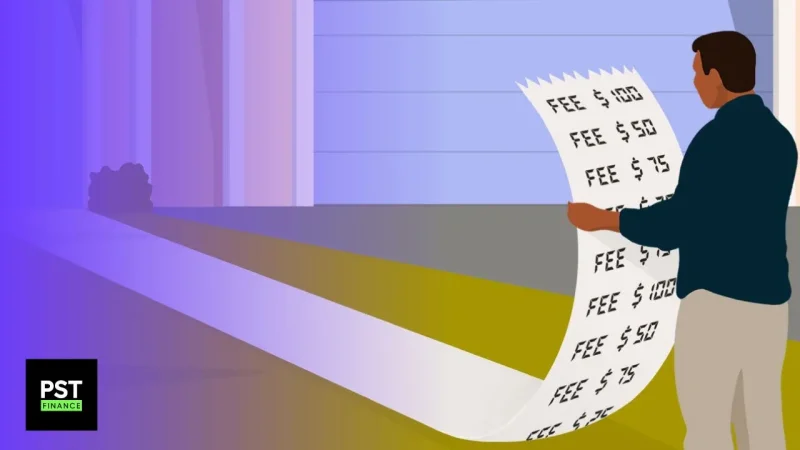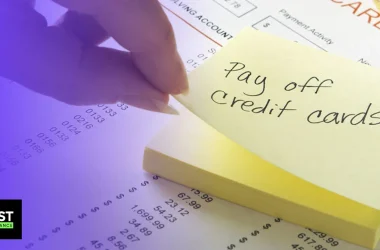Picture this: You find the most incredible apartment in the heart of your city. It’s like something out of your dreams: spacious, perfectly laid out, and with all the amenities you could ever want. You get so excited as you imagine yourself living there, but there’s just one problem. As you fill out the rental application, you come face to face with a harsh reality: your credit score is far from perfect. The landlord might as well have slammed the door in your face, because you’re trying to rent with bad credit.
With rental prices skyrocketing each year, it’s already hard enough to find an affordable place to live, and what’s even harder is trying to do that with a low credit score. To counter this, here are five invaluable tips that can help you rent with bad or very little credit.
5 Tips to Rent with Bad or Little Credit
Approach Private Lenders
Try taking a different approach to renting, and finding a landlord that doesn’t require credit. This means that they would evaluate your ability to pay rent using something else. For example, renting with a bad credit score will definitely be harder if you try to rent a place managed by a property management company, but if you find a private landlord, you may have a little more wiggle room.
In fact, there are some private landlords out there that only care about how much money you’re making. For example, if the monthly rent is $1,500, they will only accept someone that makes around $3,000, or anything around that range. Therefore, you could go search for a landlord who doesn’t care about your credit, or won’t ask you to pull your credit.
If you find someone like this, you still need to be cautious of scams and deals that sound too good to be true. Make sure that the landlord is legitimate by asking around the neighborhood, or requesting a tour of the apartment or house. Check the paperwork very carefully since some people do this to sell homes they don’t even own. If your credit is bad, then you’ve already had financial problems, and another problem like this is the last thing you need, so be cautious and patient.
Pay Higher Rent or Deposit
You could also offer to pay a slightly higher rent or a higher deposit to be accepted. You might be thinking that this is counterintuitive, as you’ve already had financial problems and now you’re going to pay more, but this may be a really good option for you if you’re struggling to rent due to a really bad credit score. For instance, if the landlord’s asking for $1,500, you could offer $1,700. Maybe if they’re asking for a $2,000 deposit, offer them a $2,500 deposit.
Most landlords will end up returning your security deposit to you as long as you haven’t broken any of the terms outlined in your lease agreement, so you’ve got nothing to lose by offering a higher deposit as long as you read the lease agreement well. This could also be very useful if you’ve never rented before, and have little credit history, which is as bad to landlords as having bad credit. Therefore, you need to save up some money before you decide to make that move.
Pay Multiple Months Upfront
Landlords love it when tenants pay multiple months upfront, and you’ll likely get accepted if you do it. You could just tell the landlord that you’ll give them $3,000 right away if the rent is $1,000 per month, and landlords love this because it means they don’t have to worry about whether you’ll be able to pay or not for three months. This also gives you three months to accumulate some money and not worry about having to make a rent payment, while letting your landlord know that you have the money to pay your rent even with a bad credit history.
Instead of submitting your credit report, you will have to submit a proof of income. You could even submit three or four months of bank statements that show how much money you have in your bank account to give them more security, just be sure to block out your bank account number to be safe. A trick to pull this off is that you and your family or friends can send each other money everyday, using any app like PayPal (NASDAQ: PYPL) or Venmo. This will make it seem like you have a lot of cash flowing into your bank account. If you do this over a few months, and you can make it look like you make triple the rent they ask for. Other sources of income you can include are any income from any side hustles you could be doing. For example, if you make some extra cash driving for Uber (NYSE: UBER), you should include that.
A Letter of Reference
Consider having someone write a letter of reference for you. This might sound a bit old fashioned, but letters of reference could actually carry a lot of weight with people, especially if they’re from your employer or previous landlord. They could write that you’ve been very responsible with your work or payments and you’re just having a hard time right now, which is why your credit score isn’t good, in the letter. Or you could get a previous landlord to write that you keep the property clean and undamaged. All of this could make a big difference with the landlord you want to rent from.
Get a Roommate, Co-signer, or a Guarantor
This may not work for everyone, but it’s still worth considering; getting a roommate with a better credit score, whether this roommate is already on the lease agreement and you’re being added on, or you’re seeking a new place to live with someone else.
If you don’t want a roommate, you can get a co-signer instead. A co-signer is usually a financially responsible relative that signs the contract with you, so the landlord has some guarantee and someone to go after if you fail to pay your rent. This situation is good for all sides, since the landlord will ultimately get their money from the co-signer if you don’t pay, and having the backing of a co-signer makes you look more legit and a safer option to accept.
The downside to this is that if you default, you could ruin your co-signer’s credit score as well, which can create bad blood between the two of you. So, before asking a loved one to co-sign, it’s important that you both understand the risks involved. If you can’t get a roommate or a co-signer, then you could get a guarantor. A guarantor can vouch for you and let the landlord know that you’re good for your money, but they are not entitled to live in the apartment or rental home.
What Landlords Want to Know
Landlords care about your credit report because it acts as a picture of your behavior. What they look for are events of defaulting on payments in the past or any collection accounts, which are unpaid debts that have been sold to a debt collections agency who will attempt to collect the debt. You could pull up a credit report, see what’s wrong, and try to work on it to improve it. But, this process could take months, and if you want to rent a place right away, there will be no time for you to improve your credit score.
Still, you should request a credit report by visiting AnnualCreditReport.com, and you’re entitled to a free credit report once a year. You might be surprised to see that your credit is bad because of something you already paid, but it wasn’t taken off from your credit report, so you’d only need to dispute that with the credit bureau that has the mistake to improve your credit. Once you pull your credit report and know what went wrong, you can write a letter to your potential landlord explaining everything in your credit report. Let’s say, you had a health emergency that affected your finances and in turn your credit score, then you could just explain that to the landlord and this could increase your chances of being accepted.
You could also say that the negative items in your credit reports are news to you, and you don’t know how they happened and say that you’re in the process of disputing. They might accept that excuse as long as you offer something in return, like a higher deposit. If you still end up getting a denial letter, you should still read it because it gives you the right to ask for further information, and not many people actually take that step.
If you question the landlord or the property management company about it and say that you want to have a conversation with them about it, they might start looking at you differently and think you’re a serious person who really wants that apartment, and you could get another chance at getting the place you want.
Building Your Credit Back Up
After succeeding in renting a place with a bad credit score, the next thing you need to do is build that credit back up. Remember that your debt makes up 30% of your credit score, so don’t use more than that to stay safe. For example, if you have a $3,000 balance credit card, don’t spend more than $1,000 using it.
Another tip is to just stop applying for credit cards until you have everything stabilized and figured out. Every time you apply for a new credit card, that’s a hard inquiry on your credit, which makes your credit score go down. You could get a secured credit card instead, which works like a prepaid card that helps you build up credit. For example, if you go to your bank and ask for a secured credit card and give the bank $500, you’ll receive a credit card with a $500 balance.
After a year or two, the bank could offer to turn your secured credit card into an actual credit card, and give you that $500 back, so you don’t have anything to lose, as the bank only keeps the money for collateral.
Disclaimer
Please visit and read our disclaimer here.









